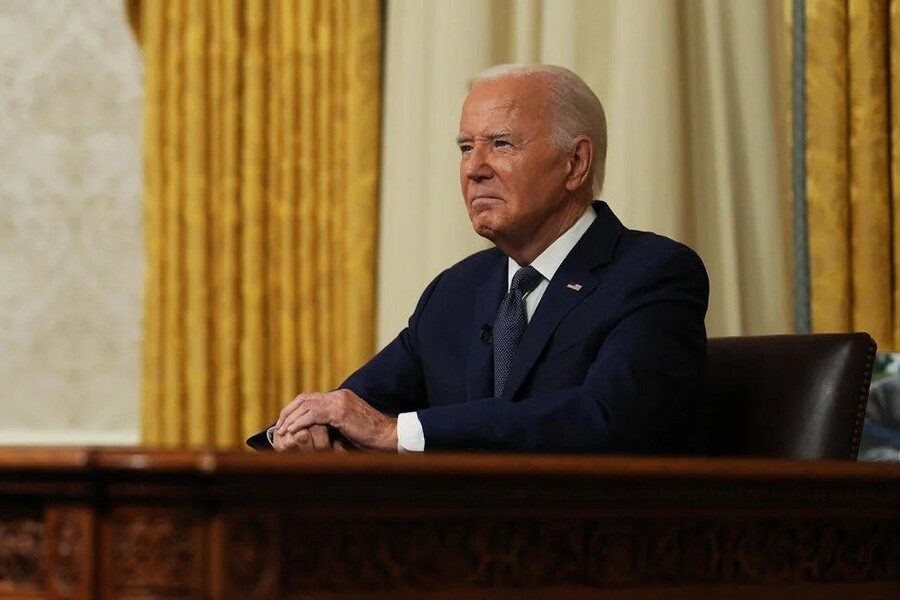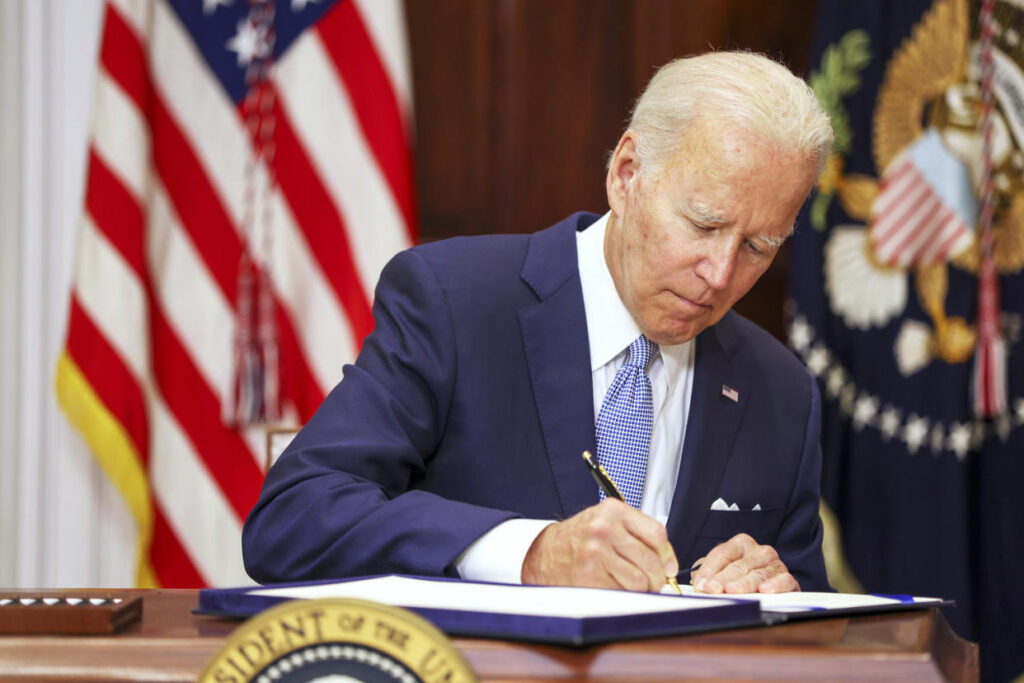On Christmas Eve, President Joe Biden wrapped up a busy year in the most memorable fashion: by signing 50 bills into law. The slew of legislation touched a wide array of issues, from protecting teenagers in residential treatment facilities to introducing bold reforms in higher education and reshaping the way Congress handles convicted officials. With the holiday spirit in full swing, Biden’s Christmas Eve signing spree reflects his push for change, his commitment to reform, and his belief in doing the right thing for the American people as the year—and his presidency—drew to a close.
Among the bills signed was one that brought a personal victory for socialite and activist Paris Hilton. The “Stop Institutional Child Abuse Act” was a cause close to Hilton’s heart, as she has long advocated for better protections for children in institutional settings. Hilton’s testimony before Congress about her own traumatic experiences in treatment facilities as a teenager propelled the bill to the forefront. The new law establishes a federal work group tasked with overseeing youth residential programs to ensure that minors living in rehab or treatment centers receive proper care, protection, and placement. The legislation also seeks to improve health and safety standards in such facilities, ensuring that teenagers are treated with dignity and respect.
Hilton’s tireless advocacy has been credited with bringing much-needed attention to the issue of institutional abuse. Her involvement in this legislation highlights the power of celebrity-driven activism, showing that a high-profile figure can bring about meaningful legislative change, especially when the issue is personal.
Another major piece of legislation signed into law is the Stop Campus Hazing Act. This new law aims to tackle the longstanding issue of hazing on college campuses, which has resulted in numerous deaths and injuries over the years. The new rules will require colleges and universities to disclose hazing incidents reported to campus or local police authorities in their annual security reports. But the bill goes beyond mere reporting; it also mandates that schools teach students about the dangers of hazing. With hazing incidents continuing to make headlines across the nation, this law is a step toward curbing dangerous traditions and holding institutions accountable. By increasing transparency and education on the subject, the legislation hopes to prevent future tragedies and ensure that students are better informed about the risks they face in certain campus cultures.
In a major shift toward accountability in Washington, Biden signed a law that prohibits members of Congress from collecting their pensions if convicted of crimes related to public corruption. The bill, known as S. 932, follows years of criticism over the ability of elected officials to continue collecting taxpayer-funded retirement checks even after being found guilty of criminal activity. Under the previous law, convicted members of Congress could continue receiving their pensions only after all appeals had been exhausted. The new law eliminates that loophole and ensures that those found guilty of using their political power for personal gain—such as bribery, fraud, and other corrupt practices—will no longer be able to financially benefit from their time in office. This new bipartisan measure comes in the wake of a high-profile case involving Senator Bob Menendez of New Jersey, who was convicted of using his position to benefit businessmen and foreign governments in exchange for bribes. The new law is seen as a direct response to his case and sends a message to elected officials that their actions will have consequences.

In a lighter moment, President Biden also signed into law a bill designating the bald eagle as the official bird of the United States. While the bald eagle has long been a symbol of American strength and freedom, the federal government has never formally recognized it as the national bird. The new law, S. 4610, will ensure that the majestic bird will forever be associated with the ideals of liberty and independence that the United States holds dear. The decision to make the bald eagle the official bird is part of a broader effort to celebrate American heritage and acknowledge the symbolic importance of the nation’s wildlife. The bald eagle has become a cherished emblem, and this new designation adds a layer of official recognition to its cultural significance.
In addition to the flurry of legislative signings, President Biden also made headlines with his decision to grant clemency to 37 of the 40 federal inmates facing death sentences. The move, which commuted their sentences to life in prison without the possibility of parole, sparked a wave of reactions across the country. Some lauded Biden for his compassionate approach to criminal justice, while others criticized the decision, arguing that it could send the wrong message regarding accountability for serious crimes. Meanwhile, the president also vetoed a controversial bill that would have created 66 new federal judgeships. The bill, which passed the House at lightning speed, was criticized by Biden for being rushed through without adequate consideration of key issues, such as how the new judicial positions would be implemented. The veto of this bill serves as a reminder that while Biden is committed to expanding judicial resources, he also believes in careful deliberation before enacting such sweeping changes.
As President Biden signs these landmark pieces of legislation, it’s clear that his Christmas Eve signing spree wasn’t just about tying up loose ends before the end of the year—it was about cementing a legacy of reform, accountability, and compassion. Whether it’s protecting vulnerable teenagers, curbing corruption, or honoring the nation’s wildlife, these 50 bills reflect Biden’s commitment to leaving a lasting mark on American law. With the year winding down and his presidency entering its next phase, these new laws signal that Biden is determined to push for meaningful change across a variety of sectors. As the holiday season brings a sense of reflection, these legislative moves are a testament to the president’s efforts to make the country safer, more just, and more compassionate for all its citizens.
As the nation looks toward the year ahead, these bills stand as a reminder of the power of legislation to improve lives, protect rights, and move the country closer to a future where justice and equality are at the forefront of national policy. As for Paris Hilton’s fight against institutional abuse, her victory on Christmas Eve will undoubtedly stand as one of the more poignant and personal moments of the day.

